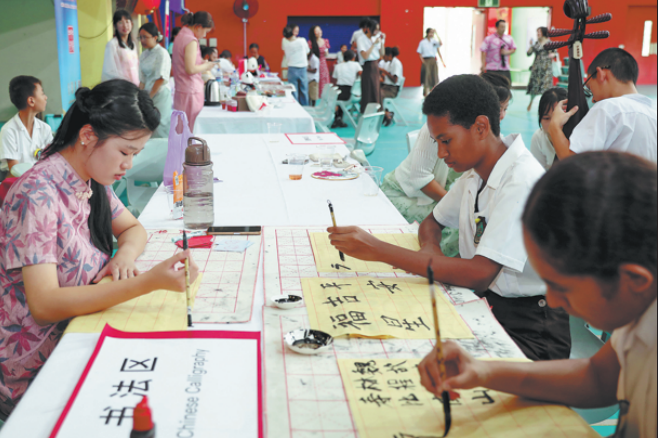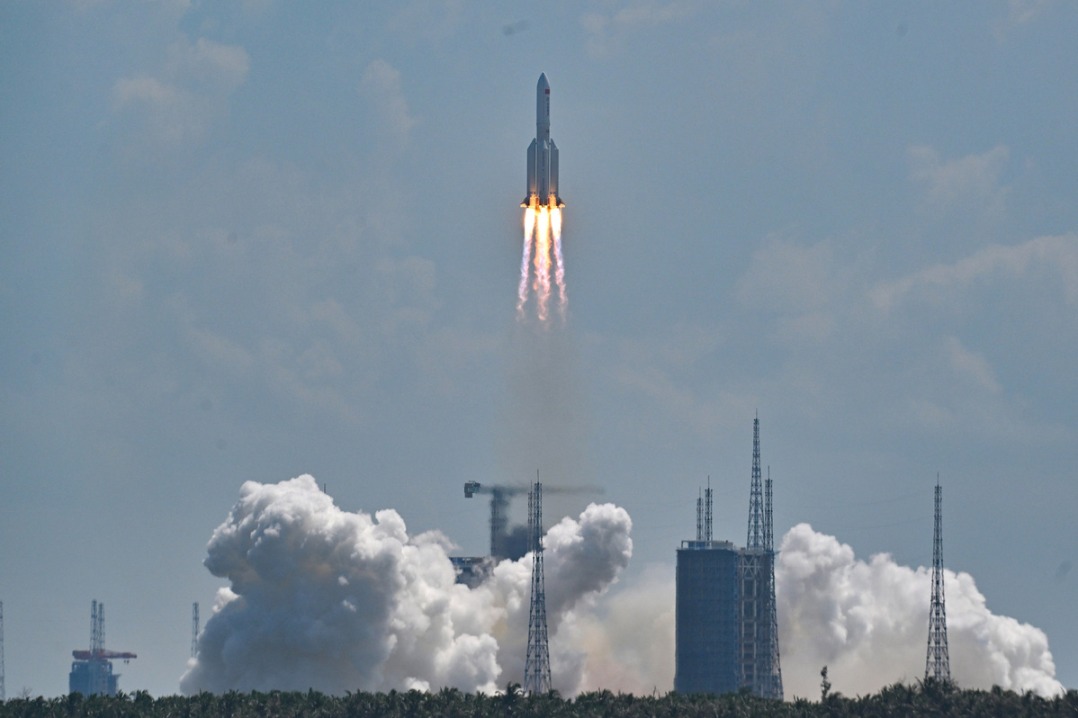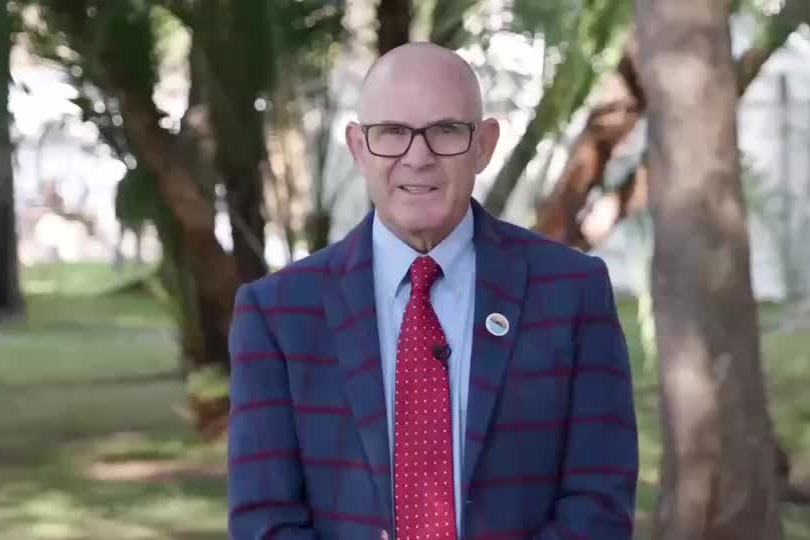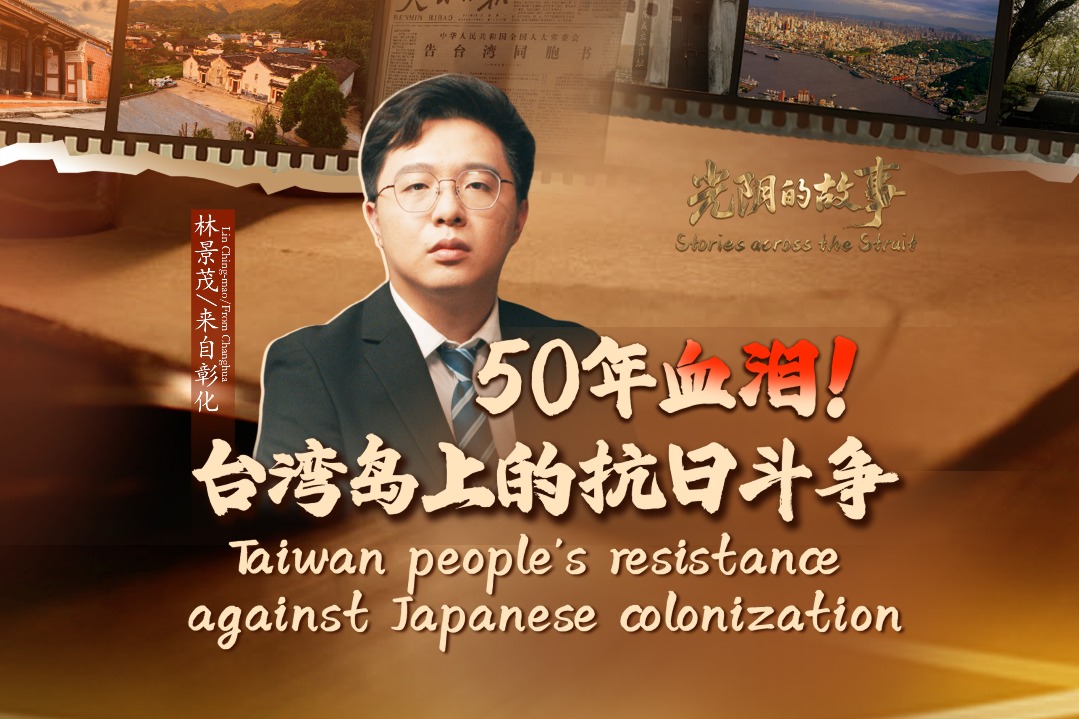Paying their way


China is a key player advancing South-South financial cooperation and enhancing sovereign credit of the Global South countries
Sovereign financing refers to the process by which countries raise development funding based on their sovereign credit by issuing sovereign bonds and obtaining loans from international markets or multilateral financial institutions. This financing is mainly used for long-term projects, such as infrastructure development and upgrading industry.
For Global South countries, sovereign financing is a crucial means to address capital shortages and promote economic growth, especially through improving infrastructure and the business environment. As these nations work to overcome the legacy of colonialism and assert sovereign autonomy, they must leverage fair international cooperation to enhance their socioeconomic development, and sovereign credit serves as the foundational guarantee for achieving this goal.
For a long time, developing countries have been in an unfavorable position in international economic cooperation. First of all, developed countries have dominated the global credit systems, leveraging their early economic lead and stronger influence. By combining technology innovation and capital strength, they have become the primary issuers of international currencies and key gatekeepers of global capital flows.
As a result, developing countries often have to rely on foreign exchange provided by the advanced economies to import cutting-edge equipment, acquire technology and develop their industries. However, this reliance places constraints on their sovereign credit, due to their vulnerability to exchange rate volatility and the liquidity risk of foreign currencies.
At the same time, international financing rules are largely shaped by developed countries based on evaluation standards from mature capital markets. Therefore, developing nations with lower geopolitical significance, limited resources or smaller market sizes are frequently overlooked, and their financing needs are marginalized.
Under these circumstances, the sovereign credit of developing countries is often undervalued. Financing terms tend to reflect the strategic interests of developed nations and the short-term risk appetite of capital, while overlooking the vital role sovereign financing plays in nurturing local markets and supporting long-term development.
To reframe the approach and mechanisms of financing for Global South countries, several key actions are needed.
First, it is important to recognize the structural uniqueness of sovereign financing in Global South countries. This type of financing is primarily directed toward infrastructure development, which helps improve the business environment, reduce transaction costs, attract investment, strengthen capacity for autonomous development and promote industrial upgrading.
However, developed countries often misinterpret this financing model as a source of fiscal deficits and inflation risks, failing to appreciate the long-term development objectives and sovereign decision-making rights of developing countries. The international community should adopt a more balanced perspective on the legitimacy and necessity of medium — and long-term debt arrangements in developing countries.
Second, Global South countries should strengthen their trade complementarity to improve the sovereign financing environment. During the colonial era, colonized economies built around monoculture failed to support diversified development. Today, drawing on their sovereign autonomy, many Global South countries are exploring unique development paths while promoting local currency settlement and trade facilitation. By deepening regional trade ties, they can enhance the credibility of their local currencies, reduce dependence on the international monetary system dominated by developed nations and advance economic independence and sustainable development.
Third, South-South financial cooperation needs to be enhanced to ease liquidity pressures from sovereign financing. Many Global South countries, particularly those in Africa, still face limited access to financing and mounting debt servicing burdens.
Debt sustainability in sovereign financing depends heavily on factors such as currency denomination, repayment terms and interest rates. Historically, many debt crises in developing nations were triggered by exchange rate volatility, rather than the financing itself. To improve debt resilience, South-South partners should work to optimize debt structures, such as diversifying currency mixes and extending repayment periods.
Even when debt crises occur, multilateral institutions often provide new financing to restore credit, but usually with strict conditions. Therefore, Global South countries should push for a more inclusive international financial system that not only supports emergency funding but also channels long-term investment into the real economy.
Fourth, Global South countries should strengthen their sovereign bond issuance mechanisms and capital markets to provide institutional support for broader development financing cooperation.
As some emerging economies grow and accumulate capital, the postwar sovereign financing landscape, long dominated by Western countries, is undergoing a change. Looking ahead, greater participation from Global South countries in sovereign financing cooperation will not only improve existing international platforms and ease persistent funding shortages, but more importantly, will facilitate mutual sovereign bond issuance among developing countries. This can boost regional creditworthiness and help maintain a stable and integrated market environment.
Wider engagement will also lower borrowing costs for individual countries and direct capital into the real economy, advancing the shared goal of modernization.
China has been actively supporting sovereign financing cooperation within the Global South. In October 2023, the Bank of China supported Egypt in issuing sustainable panda bonds worth 3.5 billion yuan ($487.2 million) in the Chinese financial market. In March 2025, the Export-Import Bank of China supported the African Export-Import Bank in issuing 2.2 billion yuan in panda bonds. These efforts reflect China's strong commitment to advancing South-South financial cooperation and enhancing sovereign credit across the Global South.
At the same time, it is important to recognize the widespread debt sustainability challenges facing many developing countries. High default risks often stem from undiversified economies, unstable fiscal revenues or limited public sector capacity. The recent debt crises in countries such as Zambia and Sri Lanka highlight the urgent need to strengthen risk assessment and institutional frameworks alongside efforts to promote sovereign financing cooperation.
Strengthening sovereign credit and expanding financing cooperation among developing countries does not mean overlooking the repayment pressures that excessive borrowing can create. Rather, it underscores the unique role sovereign governments play in improving market conditions and bridging development gaps. Such cooperation must be backed by robust risk management mechanisms tailored to the realities of the Global South. These could include financing arrangements linked to complementary goods, shared risk funds, and debt coordination mechanisms or multilateral platforms designed to reflect the development needs of Global South countries.
Yang Baorong is a researcher at the Institute of West-Asian and African Studies at the Chinese Academy of Social Sciences. Li Qi is a PhD at the School of International Politics and Economics at the University of Chinese Academy of Social Sciences.
The authors contributed this article to China Watch, a think tank powered by China Daily. The views do not necessarily reflect those of China Daily.
Contact the editor at editor@chinawatch.cn.


































